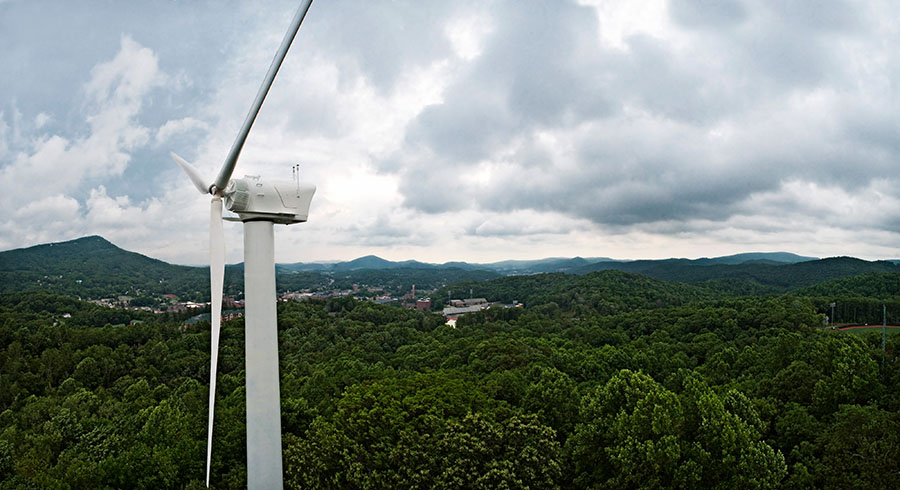NEW YORK—As the nation gears up to celebrate Earth Day on Wednesday, April 22, The Princeton Review has released its sixth annual free guide to the most environmentally responsible “green” colleges.
Appalachian State University is one of 12 colleges or universities in North Carolina to be included in the list.
The Princeton Review’s Guide to 353 Green Colleges: 2015 Edition profiles colleges with the most exceptional commitments to sustainability based on their academic offerings and career preparation, campus policies, initiatives and activities. The profiles in the guide give college applicants information about each school’s admission requirements, cost and financial aid, as well as student body facts and stats.
The free 218-page guide is downloadable at http://www.princetonreview.com/green-guide. The guide includes detailed “Green Facts” write-ups on the schools. The write-ups report on everything from the school’s use of renewable energy, recycling and conservation programs to the availability of environmental studies and career guidance for green jobs.
New to the 2015 edition is a ranking list of the “Top 50 Green Colleges” on which Lewis & Clark College (Portland, Oregon) captured the No. 1 spot. Among its many green distinctions: 100 percent of the college’s electricity is generated by “green power” sources; the college has reduced its greenhouse gas emissions by more than 30 percent since 2006; and the Lewis & Clark Green Energy Institute develops projects that advance and support renewable energy policies.
“Among nearly 10,000 teens who participated in our 2015 College Hopes & Worries Survey, 61 percent told Princeton Review that having information about a school’s commitment to the environment would influence their decision to apply to or attend the college,” said Robert Franek, The Princeton Review’s senior vice president-publisher. Franek noted compelling facts about the top 50 colleges on the guide’s new ranking list. Among this group of schools:
- 33 percent of their total food expenditures go to purchases of local and/or organic food
- 81 percent of the new construction on their campuses is USGBC (www.usgbc.org) LEED-certified
- 96 percent offer an undergraduate major or degree that is sustainability focused
- 98 percent have a sustainability officer and sustainability committee
Green facts about Appalachian included in the guide include:
- Alternative transportation options
- 15 percent of food budget is spent on local/organic foods
- School has a formal sustainability committee
- 100 percent of new construction is LEED certified
- Sustainability-focused degree offered
- 42 percent water diversion rate
Colleges and universities in North Carolina included in the green guide are in alphabetical order:
- Appalachian State University
- Catawba College
- Davidson College
- Duke University
- Elon University
- Guilford College
- North Carolina State University
- The University of North Carolina at Chapel Hill (No. 31 in the review’s top 50 schools)
- The University of North Carolina at Charlotte
- The University of North Carolina at Greensboro
- Warren Wilson College (No. 17 in the review’s top 50 schools)
- Western Carolina University
About Appalachian State University
As a premier public institution, Appalachian State University prepares students to lead purposeful lives. App State is one of 17 campuses in the University of North Carolina System, with a national reputation for innovative teaching and opening access to a high-quality, cost-effective education. The university enrolls more than 21,000 students, has a low student-to-faculty ratio and offers more than 150 undergraduate and 80 graduate majors at its Boone and Hickory campuses and through App State Online. Learn more at https://www.appstate.edu.
What do you think?
Share your feedback on this story.



![How NCInnovation Is Rethinking Economic Development in North Carolina [faculty featured]](/_images/_posts/2026/02/rethinking-economic-development-600x400.jpg)








